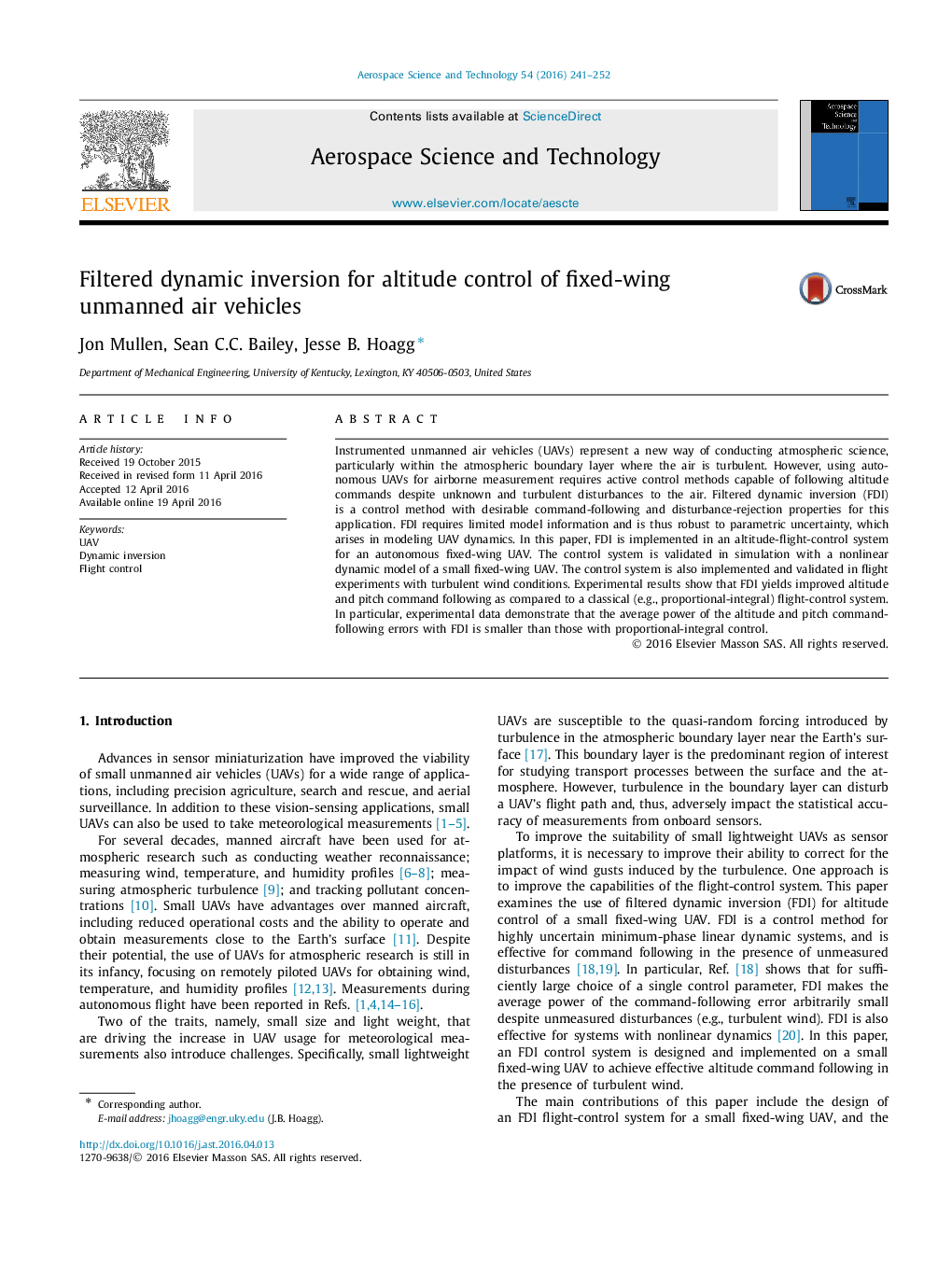| Article ID | Journal | Published Year | Pages | File Type |
|---|---|---|---|---|
| 8058588 | Aerospace Science and Technology | 2016 | 12 Pages |
Abstract
Instrumented unmanned air vehicles (UAVs) represent a new way of conducting atmospheric science, particularly within the atmospheric boundary layer where the air is turbulent. However, using autonomous UAVs for airborne measurement requires active control methods capable of following altitude commands despite unknown and turbulent disturbances to the air. Filtered dynamic inversion (FDI) is a control method with desirable command-following and disturbance-rejection properties for this application. FDI requires limited model information and is thus robust to parametric uncertainty, which arises in modeling UAV dynamics. In this paper, FDI is implemented in an altitude-flight-control system for an autonomous fixed-wing UAV. The control system is validated in simulation with a nonlinear dynamic model of a small fixed-wing UAV. The control system is also implemented and validated in flight experiments with turbulent wind conditions. Experimental results show that FDI yields improved altitude and pitch command following as compared to a classical (e.g., proportional-integral) flight-control system. In particular, experimental data demonstrate that the average power of the altitude and pitch command-following errors with FDI is smaller than those with proportional-integral control.
Keywords
Related Topics
Physical Sciences and Engineering
Engineering
Aerospace Engineering
Authors
Jon Mullen, Sean C.C. Bailey, Jesse B. Hoagg,
